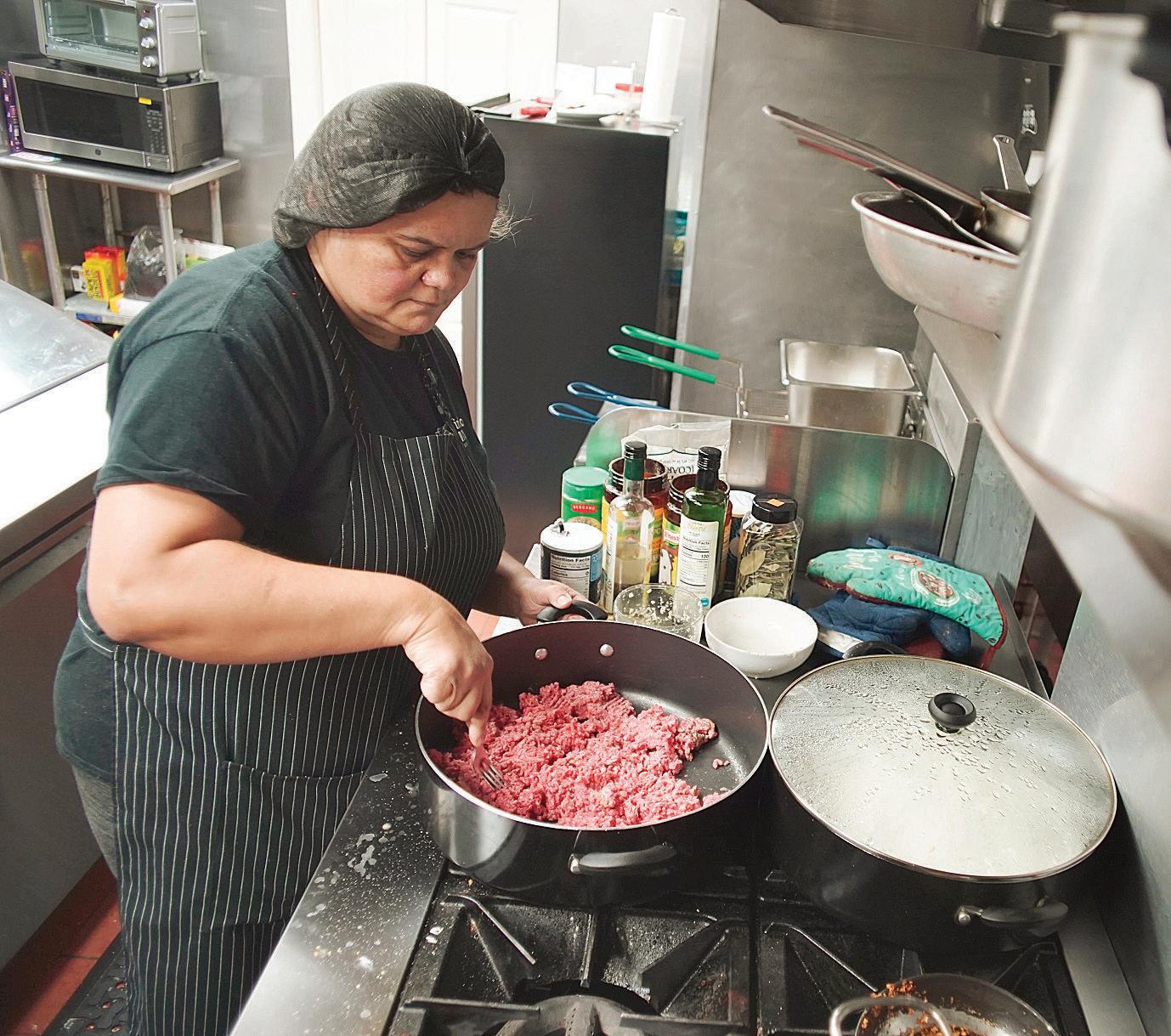
2 minute read
A taste of Rio, downtown
Brazilian caterer opens North Street restaurant
PITTSFIELD — Cristiane Melo’s salgadinhos were so popular when she first started making them for friends, she quickly turned her skills into a small at-home catering company.

Salgadinhos are a savory Brazilian snack made of fried or baked dough filled with cheese, vegetables and meat. Through word of mouth and WhatsApp — a messaging app used by immigrant communities to stay connected — Melo’s business has grown to receiving 35 orders per day.
Now Melo, a Berkshire resident of six years originally from Rio de Janeiro has taken her food, beloved in Berkshire County’s Brazilian community, to downtown Pittsfield.
In December, Melo opened Espetinho Carioca (Skewer from Rio de Janeiro) on 48B North St., where Sen Sushi once was. Melo handles the cooking with her husband, Osmar Melo. Her daughter Mariana Melo, 22, and her son Douglas Melo, 27, take care of accounting and business development, and, for now, hosting and table service.
The restaurant is open from 11 a.m. to 9 p.m. Tuesday through Saturday and has space for 45 people. It offers traditional Brazilian foods like Feijoada (black bean stew with pork and sides) sandwiches and drinks, like caipirinha — Brazil’s national cocktail, made with cachaça, sugar and lime.
Mariana Melo says they have done their best to cater to the whole Brazilian community, which comes from very different parts of a country roughly as large as the United States. Brazil has different food traditions that Espetinho Carioca tries to represent, but its primary focus is on popular foods in Rio de Janeiro.
Some concessions have been made for American taste buds, such as the inclusion of macaroni and cheese and mashed potatoes.
But the menu will definitely enchant meat lovers, who will want to try the picanha, South America’s version of rib-eye steak. Picanha is a beef cut taken from the top of the rump with a thin fat cap on top, which adds even more flavor.
In the United States, it is sometimes known as rump cover, rump cap, sirloin cap or even culotte steak. To find picanha, the Melos drive two hours east to Framingham, a Boston suburb whose population is about 10 percent Brazilian.
The origin of the picanha is fiercely disputed between Argentina and Brazil. It has gained popularity across the rest of South America, in Portugal and beyond. Since the ‘70s, Brazilians have been picanha’s fiercest fans.
Beside these classic Brazilian foods, there is also room for Cristiane Melo’s inventions, like homemade ice-cream, which Mariana Melo describes as an accident. She says one day her mother was experimenting with making a mousse out of powdered milk. But the texture was too soft.
“She put it in the freezer for a little while just to have some more consistency, and then forgot about it. It became an ice cream and we ended up eating [it all]. It was fantastic,” said Mariana Melo as her eyes lit up.
The Melos are excited to share more than food. Mariana Melo said their original plan was to broadcast the World Cup finale as part of their grand opening, but unfortunately Brazil was eliminated. However, the Brazilian soccer leagues resume in January, and Espetinho Carioca will broadcast some matches. They are also thinking of organizing live performance events like samba.
For Mariana Melo, who moved to the United States when she was 15 and is comfortably bilingual, opening this family business has meant learning all about the bureaucracy that involves opening a restaurant in Massachusetts.

Cristiane Melo is relearning how to cook. Originally, she didn’t use recipes, relying on intuition and testing.
“Now she has to follow the recipe and everything,” said Mariana Melo. “At first, she was just making food, on her own, no recipes or anything, just from what she learned from her mom and grandma.”
Cristiane Melo feels that she is up to the challenge. As she says whenever she expels a nosy relative or bothersome child from her kitchen, “I know what I’m doing, let me do my things.”






